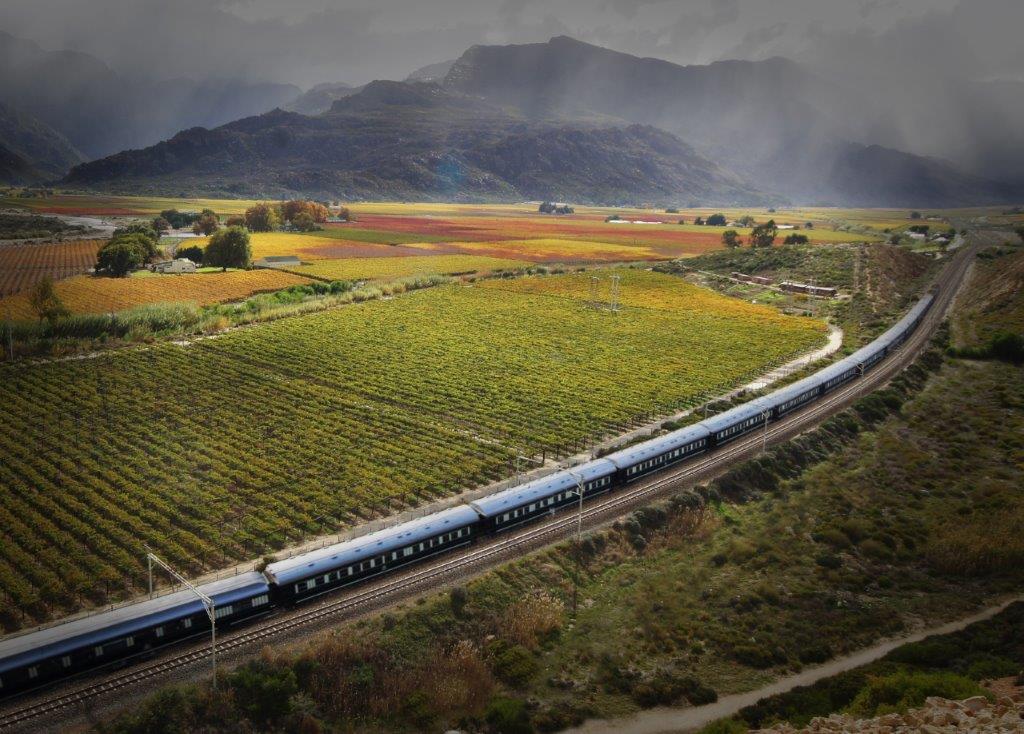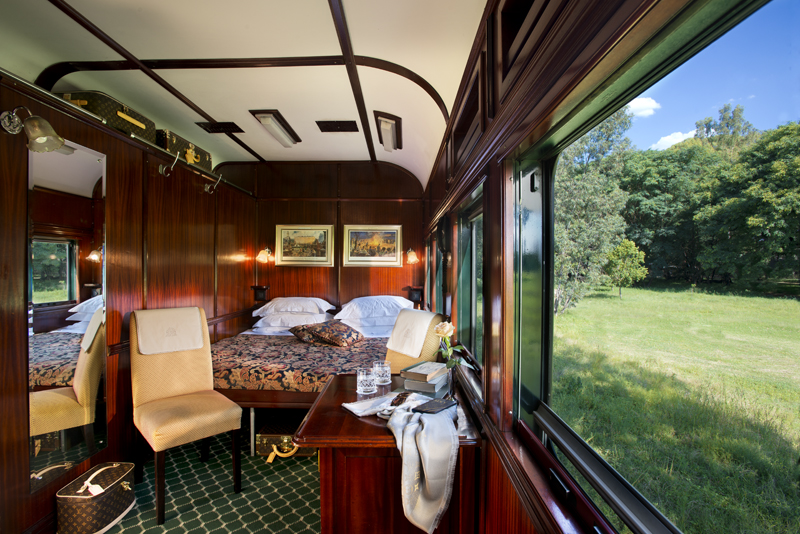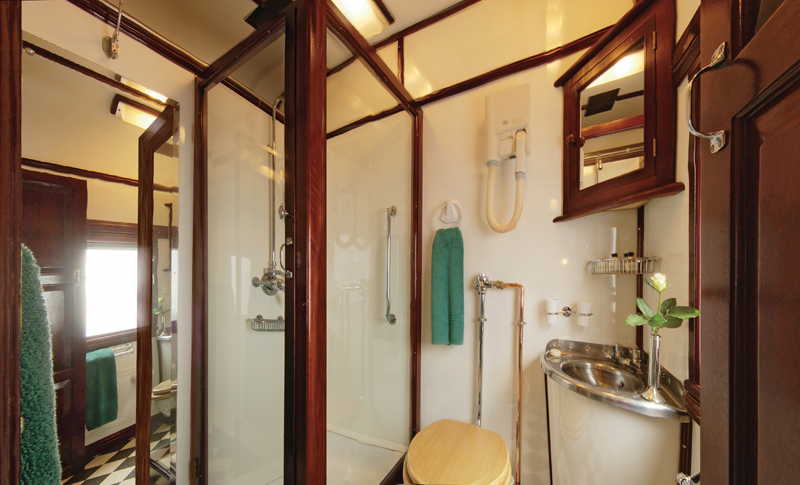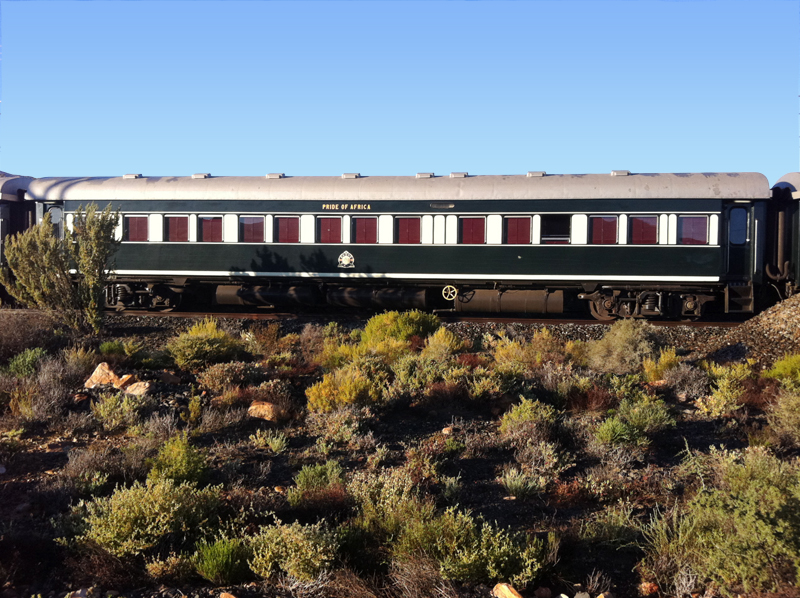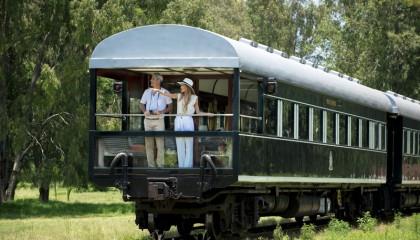The Lost Art of Train Travel
It’s always a lovely and welcome surprise when guests take it upon themselves to write a story for us. There seem to be many budding writers, poets and filmmakers on board as we are sometimes sent wonderful pieces of writing and video footage which often have the same theme – the lost art of train travel. How we’re all in a hurry to get to the destination so that we can “unwind” but once there we never put our phones down because everything needs to be shared online.
We received the below from Chris Hammond who, in his own words, could imagine himself as a history professor wearing a tweed blazer with leather elbow patches! Chris travelled from Cape Town to Pretoria on the train with his wife, Robyn, and when met on arrival at Rovos Rail Station they said that it surprised them how long it took them to relax and do nothing but eat, drink, sleep and mingle. “Train travel, in this form, is a lost art and it took some getting used to”, they said. “Well, just half a day and then we locked our phones away and didn’t seem them again until we got into Pretoria!”
The Lost Art of Train Travel by Chris Hammond
Humans haven’t yet figured out a way of travelling through time but that doesn’t exclude us from experiencing the indulgences of a bygone era, which is exactly what Rovos Rail offers the discerning traveler – a step back in time and a tantalising taste of the romance and craft of the Age of Rail.
The furious pace of our modern lives has sadly distorted our opinion of travel. The goal these days, largely, is to get from Place A to Place B in the least possible time, with as little inconvenience as possible. The journey has become a means to an end, the objective to will the time away with distraction after distraction so that we can reach the destination and carry on with our frantic lives. Now is not the time to explore the effect of this ‘always-on’ mentality on our collective psyches and stress levels, but suffice to say that, at the very least, it is unhealthy.
A century ago there were fewer options. We couldn’t jump on a plane in Cape Town and land in Johannesburg two hours later. A trip then necessitated an understanding of the journey and an appreciation of the time that it would take to cover that distance, invariably, by train. With that came an acceptance that the journey would consist of what the modern day traveller might call ‘dead time’ – a period of time where communication with the outside world was effectively impossible and seemingly little could be accomplished. The traveler was forced to seek ways of extracting pleasure from the journey itself, a notion that Rovos Rail has revisited and refined into something of an art form.
From the moment you set foot in the Rovos departure lounge, you are transported to a time that exists now only in books and in memories we hold of stories passed down to us from generations that have gone before. Vaulted, high ceilinged corridors and a rolling, red carpet lead to an elegantly appointed lounge, where the soothing chords of a string quartet float through the air and the sparkle of a glass of champagne on a silver tray welcome the guest to the Rovos experience. There is no option other than to exhale, relax and allow yourself to be transported back in time.
Nothing is rushed. The train departs when it is ready, and the landscapes pass lazily by as passengers are encouraged to unwind, to mingle and to enjoy the scenery. It is easy to forget how vast and beautiful this country is, and to watch through the windows as the space unfolds into the Karoo in front of your eyes is restorative.
Exquisite attention to detail allows for fascinating interactions with the train, as the story and history of each carriage and indeed of Rovos Rail itself is discovered to those intent on finding it. The history revealed is remarkable and enchanting, so much so that had Barney Barnato himself walked into the dining carriage it would not have felt surreal.
Undeniably the sensation of not being rushed, or of having time to spare, has become so unfamiliar to us that it takes some getting used to. It’s not long however, before one can sense the layers of stress falling away and the thrill of adventure return.
Of course, it helps immensely that your every need is catered to. Magnificent meals that seem to emanate from invisible kitchens are sumptuously stretched out into the evening, paired with the finest selection of wines that the country can offer. Guests are left wondering what kind of sorcery enables the waiters to deliver such exceptional fare in such style from within the restrictions of the train environment. Questions of service logistics are quickly forgotten though, as the combination of the dessert wine and the soothing, rhythmical motion of the train draws one into a deep sleep in the surprisingly generous double bed.
Much of the same is to be expected in the days to come, and before long the cycle of eating indulgently followed by prolonged sessions of staring into the vast expanses that present themselves has become second nature. The ‘real world’ worries that seemed so pressing before departure seem to dissipate into the blue South African sky.
Guests are left feeling revived and invigorated as the train pulls slowly into the Private Rovos station in Pretoria.

